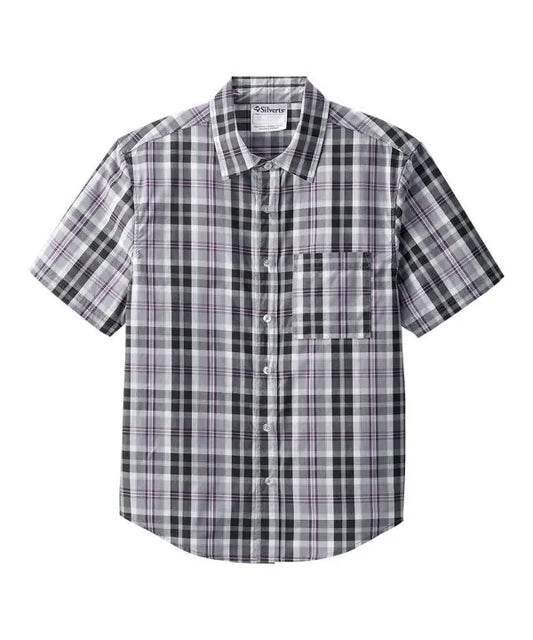Photo by Nathan Anderson on Unsplash
By Felicia Sedbrook in collaboration with Viterbo University
Are you looking to hire a Personal Support Worker to support a family member with developmental disabilities in your home? Are you looking to understand the role Developmental Service Workers have in your loved one’s daily life? Or are you looking to enter this career field? Who are PSWs and DSWs and what roles do they play in your loved one’s life?
These questions can often be overwhelming when looking for services provided to support a family member. There are a ton of different acronyms to remember. Information can feel like it is being tossed at you too quickly to be fully understood. It is a lot of responsibility and pressure to choose which service is the best option, especially with these two career fields being similar. Continue reading to better understand the roles and responsibilities PSWs and DSWs have.
What does a developmental service worker do?
Developmental service workers (DSWs) support those with disabilities in the workplace, in the classroom, and in their daily lives. Their primary goal is helping clients in their physical, occupational, recreational, social, and emotional growth.
Typically, developmental service workers are employed by school boards or in medical facilities. DSWs hired by the school board serve as educational assistants to children with learning disabilities, those who process new information more slowly than their peers, and those who might require more support. DSWs can also work in medical settings, supporting patients in dual diagnosis units, a specialty that treats patients with both a developmental impairment and a mental health condition, who may be experiencing behavioral problems.
Services provided by DSWs include the following:
- Provide client care according to the Director of Care’s (DOC) instructions
- Analyze clients’ relevant skills, strengths, limitations, and needs
- Give clients with options and alternative plans of action by collaborating with the DOC to maximize their progress in self-care
- Assess the effectiveness of treatment programs by tracking clients’ behavioral and physical changes
- Offer crisis intervention when necessary
- Supply direct feedback to the DOC about the overall progress of the client
- Assist clients with personal hygiene
- Identify and participate in performance improvement programs
- Organize transportation for doctor’s appointments, outdoor activities, and errands
- Educate clients according to their plan of care and DOC’s direction
- Maintain a safe working environment and provide quality patient care by adhering to policies, procedures, and standards of care
- Respect the rights of the client, including the right to privacy, the right to refuse care, and the right to confidentiality
- Respond quickly and appropriately to an emergency
- Operate equipment with care and inform the DOC immediately of any equipment defects
What are the responsibilities of a DSW?
The Ontario Association on Developmental Disabilities defines the role of a developmental service worker (DSW) as helping an individual maintain their self-defined quality of life and supporting community participation in areas like education, employment, and recreation. DSWs also teach, promote physical and mental health, support spiritual and creative expression, and act as an advocate for the individual or the larger group of clients. Within the many roles and services a DSW provides, they must also abide by certain core values.
Competence – The role of a DSW varies depending upon the individual they are supporting. This role requires unique in-depth knowledge across multiple subjects including, but not limited to human development, effective instructional strategies, and facilitation of independence. It is the responsibility of the DSW to continue professional learning and if a service is outside of their scope of knowledge to find the proper resources or supports necessary.
Confidentiality – DSWs have access to multiple forms of information regarding the individuals they support. A wide range of duties are carried out by developmental service professionals, such as document management and filing, creating reports, preparing for billing, and collaborating with team members. Effective case management also requires being well-organized and capable of setting priorities for the needs of the clients. It is the responsibility of the DSW to protect the privacy of the clients they are working with to the strictest standards.
Integrity – With the people they are supporting, DSWs are placed in a position of power. It is the responsibility of the DSWs to treat the clients they assist with respect and ensure the individuals with developmental disabilities are shielded from misuse of this power. A DSW has an obligation to advocate for their clients’ interests as well. If necessary, DSWs may need to employ safe physical restraint and de-escalation tactics, which they learn through specific training programs like Ukeru.
Relationship – Respecting that each person has a distinct experience helps DSWs relate to clients more effectively and forge stronger bonds with them. Developmental care providers can assess a client’s requirements by using empathy to understand their individual experiences. Given that developmental care workers frequently interact with a diverse clientele, effective verbal and nonverbal communication skills are crucial. Understanding and interpreting nonverbal clues and body language is also essential for efficient communication, regardless of the client’s age, gender, disability, or cultural background. These caregivers can interact and build rapport with their clients by paying close attention, asking pertinent questions, and employing strategies like summarizing and paraphrasing. A developmental service worker’s job is to assist people with diverse needs and situations. When working with complicated problems and clients who need a lengthy period for progress, patience is also crucial.
To better understand the resources available for community accessibility, check out Breaking Down Barriers: Supporting our Community through Accessible Resources.
What is the difference between PSW and DSW?
Despite the common misconception that they are the same professions, developmental service workers (DSWs) and personal support workers (PSWs) are very different. PSWs help people in their homes in long-term care facilities with personal care and health-related needs. Typically, they work mostly with the elderly or people with chronic illnesses, physical disabilities, and cognitive impairments.
In contrast, DSWs work with people of all ages who have physical or developmental disabilities, such as cerebral palsy, Down syndrome, autism, and more. PSWs and DSWs operate in distinct environments and are required to have diverse educational backgrounds. Whereas positions for DSWs are typically found in schools and hospitals, those for PSWs tend to be found in private homes or long-term care institutions.
PSWs support people who struggle with everyday duties at home with patience and care. They assist patients with dressing, bathing, and meal preparation. A PSW is often employed by a social service organization, nursing home, retirement home, long-term care facility, or community center.
PSWs attend to the physical, psycho-social, and support needs of the individuals they assist in their homes or in long-term care facilities by providing personal care. Any person who needs assistance with Activities of Daily Living (ADLs) can receive care from them. This covers eating, brushing teeth, using the restroom, applying skin care, and providing lifts and transfers.
Under the direction of a Registered Health Professional (RHP), PSWs frequently participate in bigger healthcare teams. They are required by their employers to adhere to a predetermined Plan of Care, which may involve helping with daily living activities, food planning and preparation, light housework, and other duties. In addition, they must keep an eye on the person they are helping and the surroundings, reporting and recording any dangerous situations. Besides that, they watch for and document changes in the individual they are helping’s behavior, appearance, and cognitive abilities.
Responsibilities of a PSW include:
- Setting medication reminders
- Offering companionship
- Housekeeping and laundry
- Planning and preparing meals
- Providing transportation to medical appointments and social events
Final Thoughts
Developmental Service Workers and Personal Support Workers aid individuals with disabilities in their education, daily life, employment, and community involvement. They offer people with a variety of disabilities vital help. DSWs and PSWs provide care beyond physical needs. They add fun and share laughter in their clients’ lives to create joy in what otherwise could be a stressful environment.
Celebrate everyone’s wonderful uniqueness with June Adaptive’s new line Inclusive Threads.


Explore the wealth of Disability Grants & free resources in the U.S. and Canada! Join June Adaptive’s email list below for more information delivered to your inbox. Sign up now and empower your journey!

















